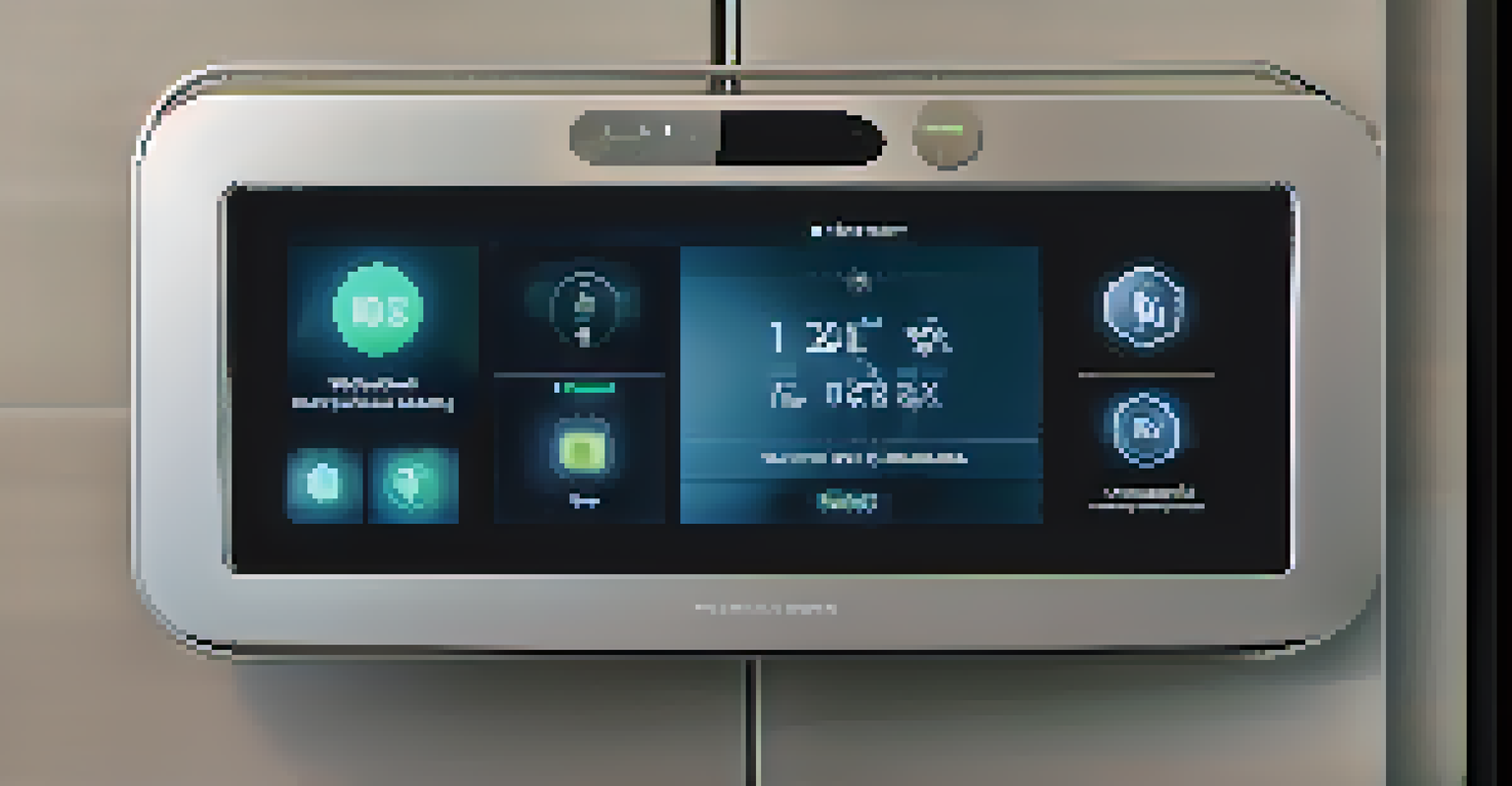Understanding Home Security System Installation Costs

What Influences Home Security Installation Costs?
When considering a home security system, various factors come into play that can influence installation costs. The type of system you choose, whether it’s a DIY option or a professionally installed system, can significantly affect your budget. Additionally, the size of your home and the number of entry points needing coverage will also impact the overall price.
The best way to predict the future is to create it.
For instance, a small apartment might only require a few cameras and sensors, while a larger house may need a comprehensive setup with multiple devices. Moreover, the complexity of the installation itself can lead to different pricing structures; a basic system can be straightforward, but a more advanced setup might require specialized labor.
Ultimately, understanding these key factors will help you better estimate the potential costs associated with installing a home security system. It's always a good idea to weigh your options and choose a system that fits both your security needs and budget.
The Types of Home Security Systems Available
Home security systems come in various types, each with its own cost implications. Traditional wired systems often have higher installation costs due to the need for physical wiring throughout your home. On the other hand, wireless systems, which have gained popularity in recent years, may have lower installation costs but could involve ongoing subscription fees for monitoring services.

Another emerging option is smart home security systems that integrate with your existing smart devices. While these can be more expensive upfront, they offer the benefit of remote access and control through your smartphone. This convenience often justifies the cost for many homeowners.
Factors Affecting Security Costs
Home security installation costs vary based on system type, home size, and complexity.
Understanding the different types of systems available will help you make a more informed decision based on not just price, but also functionality and long-term expenses.
Understanding Installation Fees and Costs
Installation fees can vary widely based on the complexity of the system and the provider’s pricing structure. Some companies offer free installation as part of a package deal, while others might charge a flat rate or an hourly fee. It's essential to ask potential providers about their installation costs upfront to avoid surprises later.
An ounce of prevention is worth a pound of cure.
As a rule of thumb, basic installations typically range from $100 to $500, but more elaborate systems can climb significantly higher. For instance, if your system requires extensive wiring or multiple cameras, installation fees can quickly escalate. Always ensure that you factor in these costs when budgeting for your security system.
Additionally, consider any hidden costs, such as permits or additional equipment needed for installation. Knowing these details will enable you to prepare financially and avoid any last-minute expenses.
Monitoring Services: An Added Cost to Consider
Many home security systems require a monitoring service, which can add to your overall installation costs. These services typically charge a monthly fee in exchange for 24/7 monitoring of your home’s security. The prices can vary based on the level of service; some providers offer basic monitoring, while others provide more comprehensive options with additional features.
For example, a basic monitoring plan might start at $15 per month, while premium services with video monitoring and mobile alerts can exceed $50 monthly. When calculating your home security budget, it’s crucial to include these ongoing costs, as they can significantly impact your long-term financial commitment.
Understanding Monitoring Fees
Monthly monitoring services add to overall costs, with prices ranging from basic to premium options.
Choosing the right monitoring service often comes down to your specific needs and budget constraints. Be sure to evaluate what each plan offers to find the best fit for your home.
DIY vs. Professional Installation: Cost Differences
One of the key decisions you'll face when installing a home security system is whether to do it yourself (DIY) or hire a professional. DIY systems can save you money on installation, as many come with clear instructions and all the necessary components. However, it’s essential to be honest about your comfort level with technology; if the installation seems daunting, the potential savings might not be worth the stress.
On the flip side, professional installation usually comes with a higher price tag but offers peace of mind. Professionals can ensure that everything is set up correctly and functioning optimally, which is especially important for more complex systems. Additionally, many companies provide warranties or guarantees on their installation work.
Ultimately, weighing the pros and cons of DIY versus professional installation will help you determine the best route for achieving a secure home without breaking the bank.
Common Additional Costs to Look Out For
When budgeting for your home security system, it’s important to keep an eye out for common additional costs that may arise. These can include equipment upgrades, extra sensors, or even costs associated with moving or relocating equipment. If you decide to expand your security system in the future, these added expenses can quickly add up.
Moreover, some systems may have compatibility issues with existing equipment, leading to additional costs for adapters or new devices. It’s a good idea to consult with your installation provider to understand any potential extra costs that might come into play.
DIY vs. Professional Choices
Choosing between DIY and professional installation impacts both costs and the overall effectiveness of the security system.
By anticipating these additional expenses, you can create a more comprehensive budget that covers all aspects of home security, ensuring you won’t be caught off guard later.
Financing Options for Home Security Systems
Financing options can help ease the burden of upfront costs when installing a home security system. Many providers offer payment plans that allow you to spread the installation costs over several months, making it more manageable for your budget. This can be particularly helpful if you’re investing in a higher-end system that might otherwise be out of reach.
Additionally, some credit cards offer promotional financing options that can provide you with a low or zero-interest rate for a certain period. This allows you to install your security system without immediate financial pressure while still ensuring your home is protected.

Before committing to any financing option, be sure to read the fine print and understand any potential fees involved. With the right financing, you can secure your home without compromising your financial well-being.